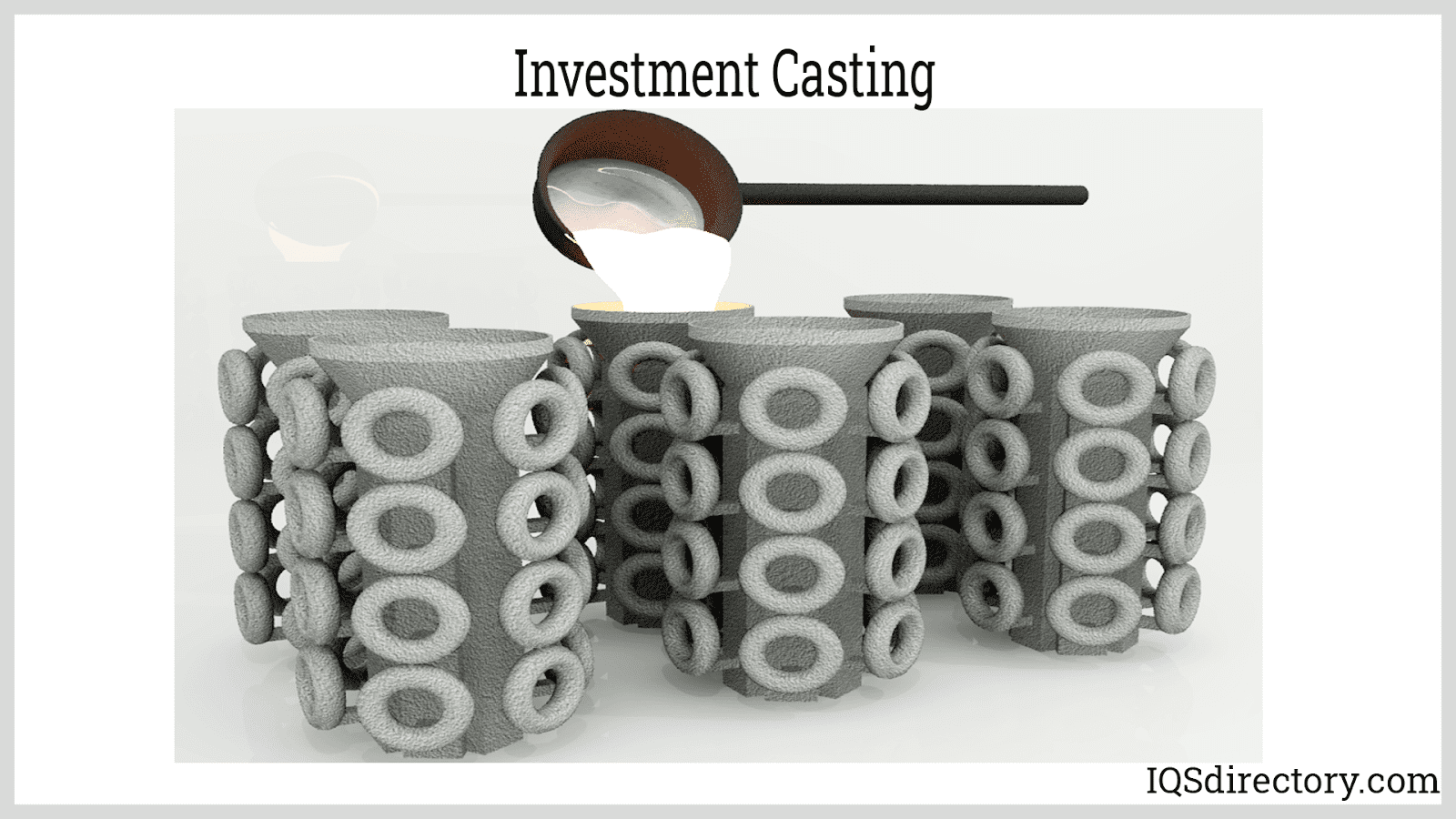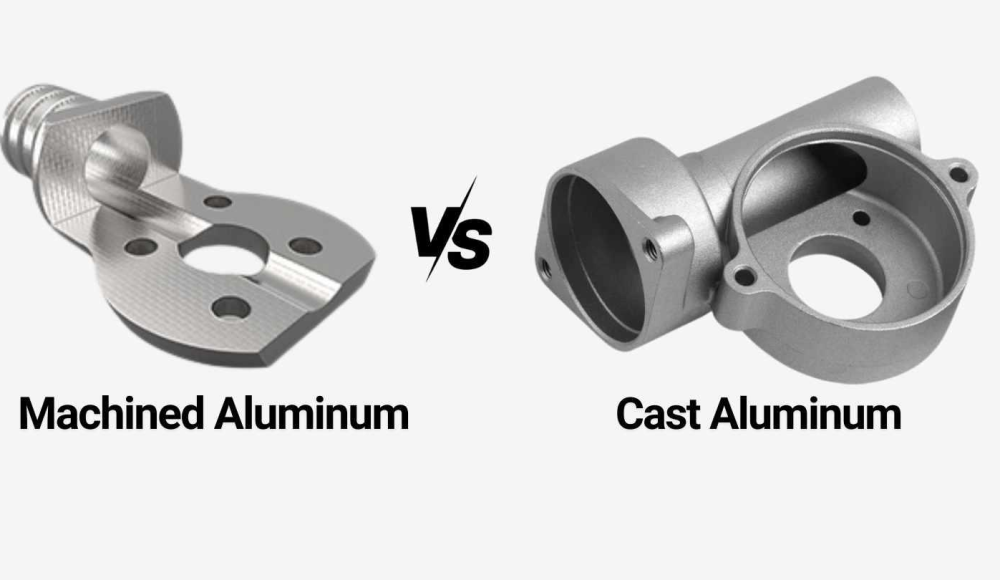The Duty of Aluminum Foundries ahead of time Lightweight Production Solutions
Aluminum factories significantly add to the advancement of lightweight production options. Their cutting-edge spreading modern technologies produce high-strength, lightweight components vital for sectors like automotive and aerospace. This development not only enhances item performance yet also promotes sustainability through the use of recycled products. As these foundries adapt to arising technologies and techniques, they pave the method for future growths in producing performance and environmental responsibility. What exists in advance in this transformative journey?
The Advantages of Lightweight Materials in Manufacturing
As markets increasingly look for efficiency and sustainability, the fostering of light-weight products in production has emerged as a necessary technique - Precision aluminum casting. These products, particularly light weight aluminum and compounds, provide various advantages that boost production procedures and item efficiency. Mainly, their reduced weight adds to decrease power intake throughout transportation and operation, causing considerable price financial savings
Light-weight materials help with the design of more complex geometries, permitting for better innovation in product growth. This flexibility often results in enhanced capability and efficiency, accommodating the progressing demands of modern consumers.
In addition, the use of light-weight products can enhance the durability of products because of their resistance to deterioration and tiredness. This toughness not only minimizes upkeep costs however additionally supports sustainability efforts, as longer-lasting items add to much less waste. To sum up, the benefits of lightweight materials are pivotal in driving effectiveness, innovation, and ecological obligation in production.
Technologies in Aluminum Casting Technologies
Recent advancements in aluminum casting innovations are transforming the manufacturing landscape, particularly in the manufacturing of lightweight parts. Technologies such as high-pressure die spreading and vacuum die spreading have considerably boosted the precision and surface area coating of aluminum components - Aluminum Casting Company. These approaches permit the production of intricate geometries while lessening material waste and improving mechanical residential properties

Furthermore, the implementation of real-time surveillance systems ensures quality assurance throughout the spreading procedure, bring about even more consistent item end results. Jointly, these developments not just boost the performance of aluminum elements yet additionally support the sector's change in the direction of even more lasting production methods.
Applications of Aluminum Parts in Various Industries
While light weight aluminum parts have long been utilized in different markets, their versatility and lightweight buildings remain to drive innovative applications across industries such as vehicle, aerospace, and building. In the automobile sector, light weight aluminum is progressively used for engine blocks, wheels, and body panels, boosting fuel efficiency and performance. Aerospace makers utilize light weight aluminum for aircraft frameworks and components, maximizing its strength-to-weight proportion to enhance fuel economic climate and haul capacity.
In the building and construction sector, aluminum is favored for window structures, roof covering, and structural aspects, providing sturdiness and resistance to deterioration while reducing general building weight. Additionally, the electrical and electronics markets gain from light weight aluminum's conductivity and lightweight nature, utilizing it in wiring, units, and warm sinks. These varied applications highlight the crucial function of light weight aluminum components, which not only meet industry demands however also add to developments in item layout and capability across several areas.
Sustainability and Energy Efficiency in Light Weight Aluminum Foundries
The light weight click aluminum foundry sector plays a crucial duty in advertising sustainability and energy effectiveness, specifically as need for lightweight elements remains to expand throughout different fields. Factories are increasingly taking on eco pleasant practices, such as making use of recycled aluminum, which substantially lowers power usage and greenhouse gas exhausts contrasted to main light weight aluminum production.
Furthermore, improvements in casting technologies enhance energy efficiency by maximizing the melting processes and minimizing waste. Methods like die casting and investment spreading enable precise product usage, lessening excess and scrap.
In addition, lots of foundries are buying eco-friendly energy resources to power operations, further reducing their carbon impact. Implementing energy management systems makes it possible for foundries to enhance and check energy use, guaranteeing they run at peak performance.

Future Patterns in Lightweight Manufacturing Solutions
How will emerging innovations shape the future of light-weight manufacturing options? Innovations such as innovative materials, automation, and additive manufacturing are established to redefine production processes. The combination of smart manufacturing technologies, consisting of the Net of Points (IoT) and fabricated intelligence (AI), will allow real-time tracking and optimization, enhancing performance and decreasing waste.

As sustainability proceeds to be an extremely important problem, light-weight solutions will increasingly concentrate on recycling and recycling materials, lining up with round economy concepts. This development in light-weight manufacturing will certainly not just enhance product efficiency yet additionally add to environmental objectives, ensuring that the industry stays affordable in a quickly altering market landscape.
Frequently Asked Inquiries
Just How Do Aluminum Foundries Make Certain High Quality Control in Manufacturing?
Light weight aluminum foundries ensure high quality control in manufacturing via rigorous testing, standardized procedures, and constant monitoring - aluminum casting. They execute innovative innovations and proficient next workers to keep uniformity, minimize problems, and meet market standards throughout the production procedure
What Are the Key Tests Encountered by Aluminum Foundries?
Aluminum factories encounter challenges such as changing raw material expenses, keeping manufacturing efficiency, making certain regular top quality, adapting to technological innovations, and meeting environmental regulations, every one of which effect their total functional effectiveness and competitiveness on the market.
Exactly How Does Aluminum Recycling Influence Shop Operations?
Aluminum reusing considerably improves factory procedures by reducing basic material costs, reducing energy intake, and lowering environmental impact. This lasting technique enables foundries to improve performance while meeting boosting demand for lightweight, high-performance light weight aluminum items.
What Skills Are Needed for Workers in Aluminum Foundries?
Workers in light weight aluminum shops need abilities in metallurgy, machining, quality control, and safety and security techniques. Effectiveness in operating equipment, understanding alloy homes, and analytic are also crucial for efficient manufacturing and keeping high security criteria.
Exactly How Do Aluminum Foundries Deal With Waste Management?
Light weight aluminum shops take care of waste with recycling scrap metal, using effective waste partition techniques, and sticking to environmental guidelines. They carry out sustainable practices to decrease land fill contributions, making sure that dangerous materials are thrown away responsibly.
Aluminum shops greatly add to the development of light-weight production services. Current innovations in aluminum spreading innovations are changing the manufacturing landscape, specifically in the manufacturing of lightweight components. While light weight aluminum components have long been made use of in different sectors, their flexibility and lightweight properties proceed to drive ingenious applications across industries such as vehicle, aerospace, and building and construction. In addition, the electrical and electronic devices sectors benefit from aluminum's conductivity and light-weight nature, using it in circuitry, rooms, and warmth sinks. The aluminum shop industry plays a crucial duty in promoting sustainability and energy effectiveness, specifically as demand for lightweight parts continues to expand across different sectors.